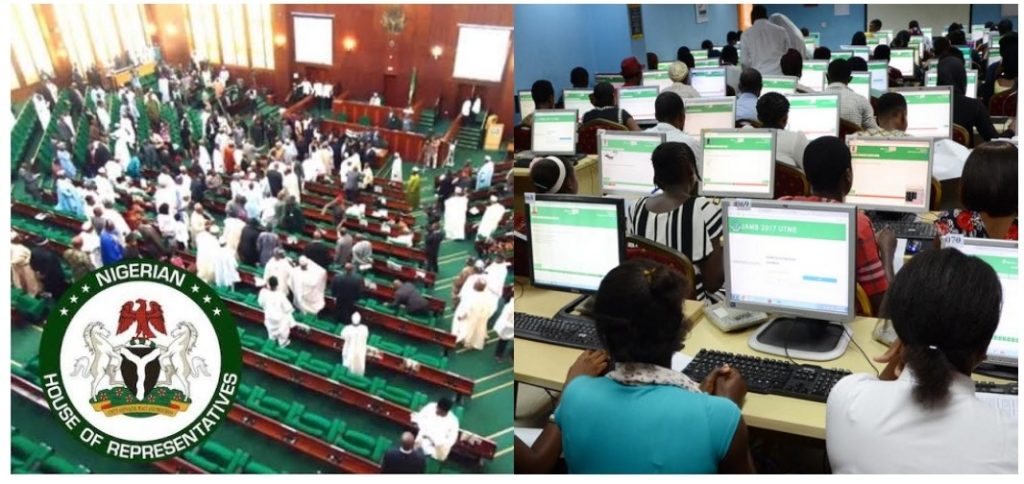The House of Representatives was on Wednesday divided over the motion to stop the conduct of examinations of post-Unified Tertiary Matriculation Examination (UTME) and Joint Admission Matriculation Board (JAMB) in the country’s higher institutions.
In a motion moved by Rep. Ademorin Kuye (APC-Lagos), during the plenary session, the lawmakers debated for and against the requirements of the motion.
Kuye, in the motion, had asked the house to urge all higher institutions to stop the post UTME/JAMB screening examinations.
He also sought the house to mandate the Committee on Tertiary Education and Services to call for a joint meeting of the Ministry of Education, JAMB and the National Universities Commission (NUC).
The mandate was to develop an acceptable standard of JAMB examinations in conformity with the requirements of academic institutions in the country.
The lawmaker said that JAMB which was established in 1978, was saddled with the responsibility of conducting matriculation examinations for entry into tertiary institutions.
He argued that Nigerians paid monies to purchase the JAMB/UTME forms to qualify them to write the examinations to gain admission into higher institutions of their choice.
“This is after payments and undergoing rigorous registration and examination processes, the said higher Institutions subject students to another internal examination/test called post-UTME/JAMB on payment of yet another fee without any consideration for indigent parents and students,” he said.
He said that the payment of fees for the screening exercise conducted by the institutions was “not backed by any law and the proceeds, therefore, are not accounted.
“This leaves room for manipulation and exploitation and lack of acceptability of the fund generated.”
Supporting the motion, Rep. Benjamin Chinedu Obidigwe (APGA-Anambra), said that the post UTME examinations conducted by the universities was just to “exploit our children. Our education in the country has resolved to some form of extortion.
“The universities corner the funds from the screening exercises because they failed to account for such revenue during their budget defence.
“Post UTME has no educational value to our system. I hope that the committee will look into this to put an end to it.”
Rep. Benjamin Kalu (APC-Abia) also said that there was a need to stop the conduct of such examinations because the universities could not account for the utilisation of funds.
Kalu also said that the conduct of the post-UTME test by schools was “casting aspersions on the integrity of JAMB.
“Granted, there are leakages, but JAMB has to sit up. What we have overseas is interviews.
”When you pass the examinations you are being invited over for an interview, not the way JAMB is going about it here.”
Speaking against the motion, Rep. Samuel Chinedu (PDP-Anambra), said that the post-UTME/JAMB examinations complemented the actual JAMB examinations.
“All they do is cross-check what JAMB has done. Admitting students who are not properly checked is rather worse than the financial implications,” he said.
Also speaking against the test, Rep. Aniekan Umanah (PDP-Akwa Ibom), said that the universities were “exploiting the internal leakages on what JAMB is doing.
“There is a need for this motion to be revisited so that we can have a common ground.”
The house, however, resolved that the Committee on Tertiary Education and Services interface with JAMB on the conduct of the post-UTME/JAMB by higher institutions and report back within four weeks.
